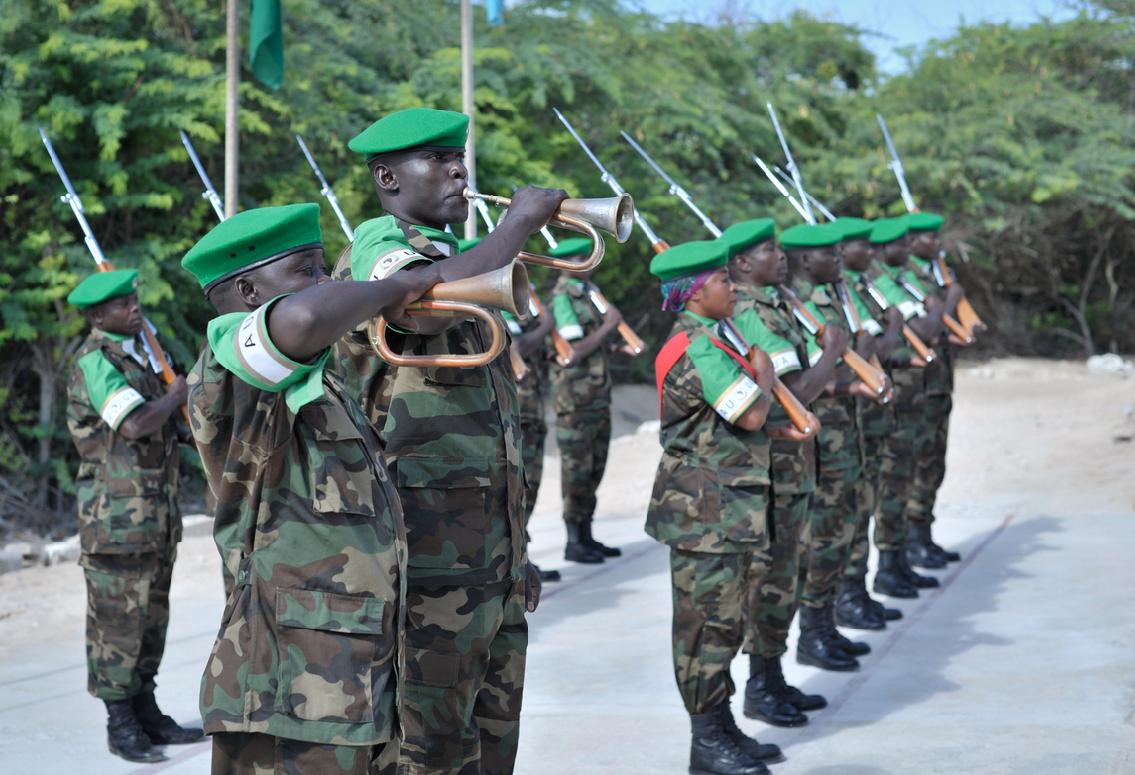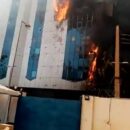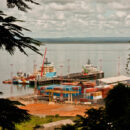Why is the African Union still failing its people on peace and security? – By Martin Plaut


The AU ‘AMISOM’ mission in Somalia has had some success, but the mission has effectively been under the control of the individual troop contributors.
The conflict in the Central African Republic is spiralling out of control. “Strife in Central African Republic could turn into religious war and spill over borders, UN warns,” reads the headline in the UN’s latest report. The UN’s head of Political Affairs, Jeffrey Feltman, told the Security Council that killings were continuing daily, dividing the country along religious lines – nearly 1 million have been driven from their homes and half the population needs aid.
This is exactly the kind of catastrophe that the African Union was designed to address. The organisation’s constitution was specifically written to allow it to step in where its widely discredited predecessor – the Organisation of African Unity – had failed to act. As its constitution puts it, the African Union can directly intervene in a member state in: “…grave circumstances, namely war crimes, genocide and crimes against humanity.”
This was introduced to ensure that Africa’s senior organization would never again allow itself to stand idly by, as it had done during the Rwandan genocide of 1994. Or so we thought.
Given the severity of the crisis in the Central African Republic one might expect a clarion call for action from the head of the African Union Commission,
Nkosazana Dlamini-Zuma. Now she may be moving heaven and earth to do all she can to tackle the conflict for all I know, but you would never know it from her public utterances.
There is not a single article reflecting her work that I can find in recent weeks. Now it may be that journalists like myself have been failing in our job, or perhaps she has a useless press officer. But I somehow doubt it.
Visiting the African Union’s own website there are no well-argued appeals for troops to be rushed to Bangui by the AU leadership. The page marked “Speeches of the Chairperson of the Commission” reveals just this: “The requested page could not be found.” The most recent message from Ms Dlamini-Zuma on any subject reads: “Dec.31.2013 Seasonal Greetings from H.E. Dr. Nkosazana Dlamini Zuma, Chairperson of the African Union Commission.”
None of this would matter if the situation was not so grave, or if African Union peacekeepers were even now being airlifted to the rescue. But the African Standby Brigades, which have been more than a decade in preparation, are nowhere to be seen.
Rather, it was French troops who were airlifted into Bangui. It was left to the United Nations to move peacekeepers from Darfur, Liberia, Ivory Coast, and even Haiti, to try to staunch the bloodletting in South Sudan.
The African Standby Force was designed to provide the African Union with exactly the kind of military capability it needs to respond rapidly to critical situations of these kinds. The concept was discussed in Harare in 1997 by African Chiefs of Defence Staff, but the initiative had to wait until July 2002 before it received a formal go-ahead.
The Standby Brigades would answer to the African Union’s Peace and Security Council, the continental equivalent of the UN Security Council. The aim was to produce a rapidly deployable force and that by 2012 two units, each 2,500 strong, would be operational within just 14 days.
The United States lavished money on what was described as the “African Peace and Security Architecture,” providing US$ 500 million to train up to 50,000 African troops. British involvement was also substantial, with more than £110 million a year being invested via the African Conflict Prevention Pool for nearly a decade.[1] Today the figure stands at £51.5 million [2] The Pool is a joint initiative, run by the Foreign Office, the Ministry of Defence and DFID.
But the force, with its 5 regional Standby Brigades, has failed to materialise. The concept has been a signal failure. Differences between African states run far too deep for them to be used in the continent’s many crises. When Ivory Coast and Mali fell apart it was the old colonial power – France – that came to the rescue.
In November 2013 an official statement from the South African government took the route of least resistance: they announced that the force would be renamed. The “African Capacity for Immediate Response to Crises” (ACIRC), would be what was termed a “transitional arrangement” until the African Standby Force could be up and running. The Nigerian Guardian was more forthright. It reported that the Standby Brigades had made little progress since they were first dreamed up over a decade ago.
So why the failure? Africa is capable of running military operations, given sufficient outside financial and logistical support. The Peace and Security Council currently boasts two “Field Missions”. One, in the Western Sahara, is so dormant it need not detain us. The other – in Somalia – is clearly active.
The 25,000 strong African Union Mission to Somalia – AMISOM – has driven al-Shabaab, out of the capital, Mogadishu. AMISOM now holds substantial areas of Somalia, but it is, in reality, run by its troop contributors. So Uganda and Burundi call the shots in the capital, while Ethiopia runs its operations in the West and Kenya holds a strip of land in the far South. Although it nominally reports to the African Union, the organization has little control over what it can and cannot do.
Much the same can be said for Africa’s regional peacekeeping forces – like the International Support Mission to the Central African Republic (MISCA). This was established under a UN Security Council Resolution on 5th December 2013. Troops from Gabon, Chad, Congo-Brazzaville, and Cameroon made up the force. But within weeks the largest contingent – from Chad – had intervened on the side of the mainly Muslim Seleka fighters. They clashed with Christians, who make up the majority of the population. The Chadians became part of the problem rather than the solution and had to be withdrawn.
The root of the problem lies with a failure of African leadership. When they held office Nigeria’s Olusegun Obasanjo and Thabo Mbeki of South Africa worked hand in glove on a range of issues. For a time it seemed that the concept of an “˜African Renaissance’ might become a reality. But the moment faded. Today both Nigeria and South Africa are ruled by weak presidents, obsessed with domestic problems and incapable of giving the continent a sense of direction.
The African Standby Force has gone the way of so many other initiatives. While African leaders have plenty of funds to lavish on their cars, palaces and planes, they deprive their military of the resources they need to do the job. I have witnessed troops being trained by United States Marines overjoyed to be given even small quantities of ammunition to practice live firing. Their own government refused to supply more than a handful of rounds; for fear that they would be used to stage a coup. This is all very depressing, but hardly surprising.
If one winds back the clock back to 1986 one finds Yoweri Museveni – then a fighter, fresh from the bush – arriving to address an OAU summit. Museveni told shocked Africa leaders to their faces that he believed they had betrayed his nation by looking the other way while some 750,000 Ugandans were killed by successive regimes. “Tyranny,” he said, “is colour-blind and is no less reprehensible when it is committed by one of our own.” Ugandans felt a sense of betrayal, Museveni said, that most of Africa had kept silent while tyrants killed them.
How much has really changed?
Martin Plaut is Senior Fellow, Institute of Commonwealth Studies. He is author of Who Rules South Africa?







A good look is due at the AU and whether it delivers effectively on the amounts spent on it as well as how its effectiveness is measured by Africa’s people. There is a danger that any organization, particularly a diplomatic/international civil service organization, could become an end in itself and ineffective in the real world, while taking up much leadership time and much resources.
[…] Why is the African Union still failing its people on peace and security? – By Martin PlautAfrican …. […]
[…] £110 million a year being invested via the African Conflict Prevention Pool for nearly a decade.[1] Today the figure stands at £51.5 million [2] The Pool is a joint initiative, run by the Foreign […]
chloroquinolone https://chloroquineorigin.com/# hydroxychloroquine treats
cialis 20mg cialis generic